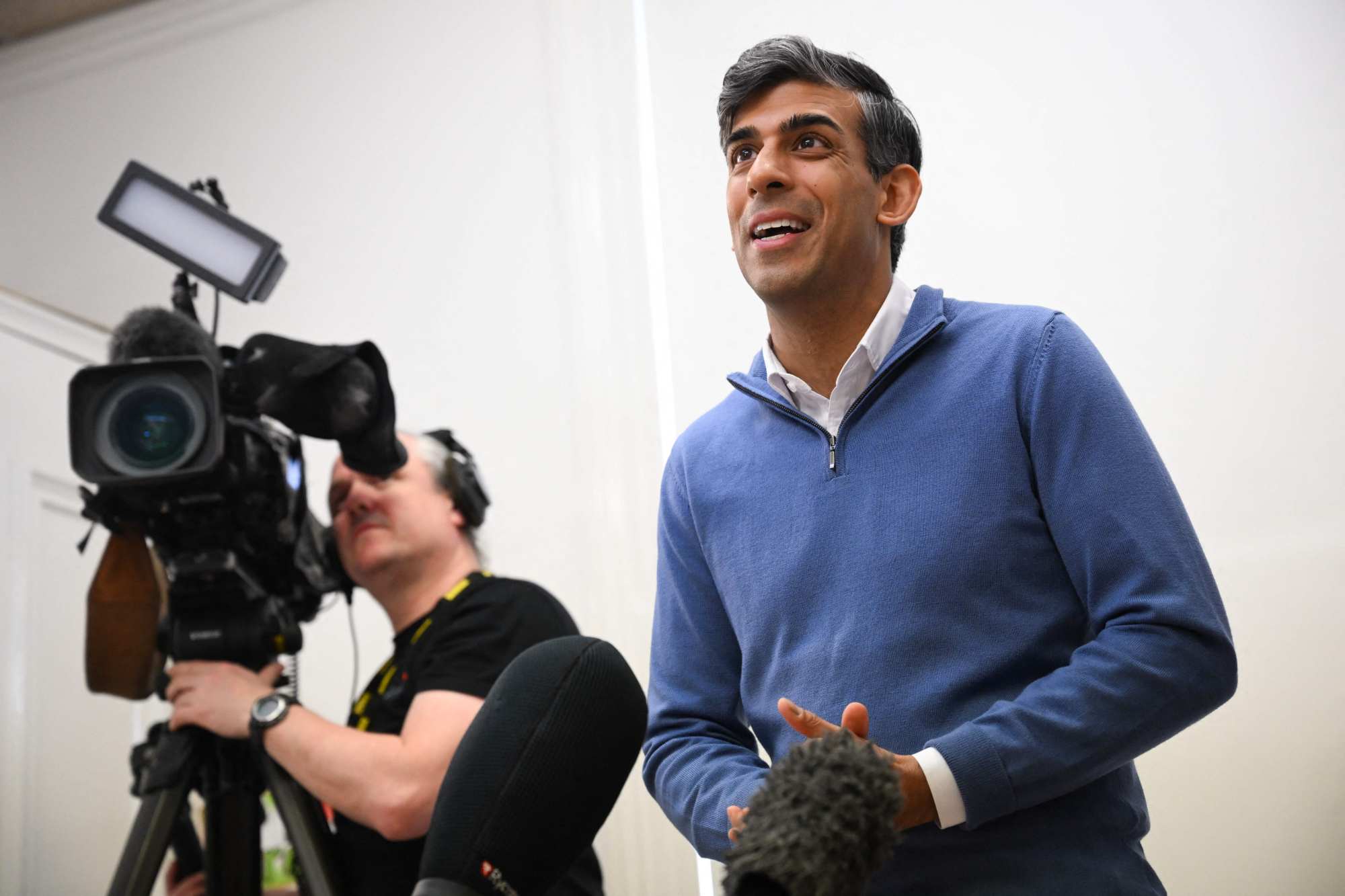
J.K. Rowling won’t face action under Scotland’s hate crime laws, police say
- The Harry Potter author made social media comments about trans women, testing the legislation on the same day it came into effect
- Rowling drew support from UK PM Rishi Sunak, who said people should not be criminalised for saying ‘common sense’ things about biological sex
JK Rowling will not face any action under Scotland’s new hate crime law after she challenged it by asserting on social media that a number of transgender women were men, police said on Tuesday.
The Harry Potter author, a prominent gender critical campaigner, made the comments on Monday, the day that the crime of “stirring up hatred” relating to age, disability, religion, sexual orientation and transgender identity came into effect.
She was backed by British Prime Minister Rishi Sunak, who said people should not be criminalised for saying “commonsense” things about biological sex.
Police Scotland said it had received complaints in relation to Rowling’s social media post. “The comments are not assessed to be criminal and no further action will be taken,” a spokesperson said.

Scotland’s First Minister Humza Yousaf had said the bill was about “protecting people from a rising tide of hatred”.
“Unless your behaviour is threatening or abusive and intends to stir up hatred, then you have nothing to worry about in terms of the new offences being created,” he said.
Women are not protected as a group, but the Scottish National Party-led government in Edinburgh is looking at separate reforms to target misogyny.
Scotland has been at the forefront of extending rights to the transgender community but a previous attempt to make it easier to change a legal gender was blocked by London over concerns it would impinge existing equality legislation.
In Scotland, online misgendering ‘could be investigated’ under new law
The new hate crime law has also faced criticism over its impact on freedom of speech and concerns that it could be used to silence some views, including from those who advocate for women-only spaces.
Rowling tested the law by listing 10 trans women, including a convicted rapist, sex abusers and high profile activists, on X and saying they were men.
“Freedom of speech and belief are at an end in Scotland if the accurate description of biological sex is deemed criminal,” she said.
“I’m currently out of the country, but if what I’ve written here qualifies as an offence under the terms of the new act, I look forward to being arrested when I return to the birthplace of the Scottish Enlightenment.”
UK teens get life sentences for ‘sadistic’ killing of trans girl Brianna Ghey
Scottish ministers have previously said misgendering people would not be an offence under the new law.
However, Minister for Victims and Community Safety Siobhan Brown told BBC radio on Monday it would be a matter for police to decide.
Sunak said Britain had a proud tradition of free speech and that the new law had given the police the wrong priorities.
“We should not be criminalising people saying common sense things about biological sex,” he told reporters. “Clearly that isn’t right.”
Meet the trans actor giving ‘a middle finger’ to Singapore’s conservative values
India Willoughby, Britain’s first transgender newsreader and one of those who was listed by Rowling, questioned why anyone should “publicly denigrate and mock” trans people.
“What a sad, pathetic sight. The best-known author in the world sitting up all night to write a mega-long troll post about me, because she’s consumed by a hatred of trans people. Completely deranged,” Willoughby said.
The Scottish Police Federation said officers were being asked to enforce new laws when resources were being cut.
“We are anticipating a high number of complaints in relation to social media posts and it is clearly going to create a lot of extra work,” it said.
A ‘militant feminist’
Rowling’s transformation from almost universally popular children’s author to a hate figure for supporters of gender identity began back in 2018.
The writer liked a post on Twitter – the forerunner to X – by a woman who described transgender women as “men in dresses”.
She apologised after attracting criticism. Then in 2019, she publicly defended a woman who was sacked from her job after posting what were deemed to be transphobic tweets.
In 2020, Rowling also sarcastically replied to a description of “people who menstruate”, writing: “I’m sure there used to be a word for those people.
“Someone help me out. Wumben? Wimpund? Woomud?”
The comment earned her the rebuke of her Harry Potter prodigies, including Daniel Radcliffe who played the boy wizard in the film franchise of the books, who publicly disassociated himself from her.
‘No one can mock us’: Bangladesh’s transgender hijra hail opening of new mosque
Rowling calls herself a militant feminist, and has revealed how she had been a victim of domestic violence.
Women’s rights, she argued, could be threatened by some supporters of transgender rights and has spoken out about allowing transgender women to use changing rooms, toilets or prisons designated for women only.
Despite the furore about her views on gender identity, she admitted in the podcast “The Witch Trials of JK Rowling” that she was “not uncomfortable about getting off (her) pedestal” and speaking her mind.


.png?itok=arIb17P0)
